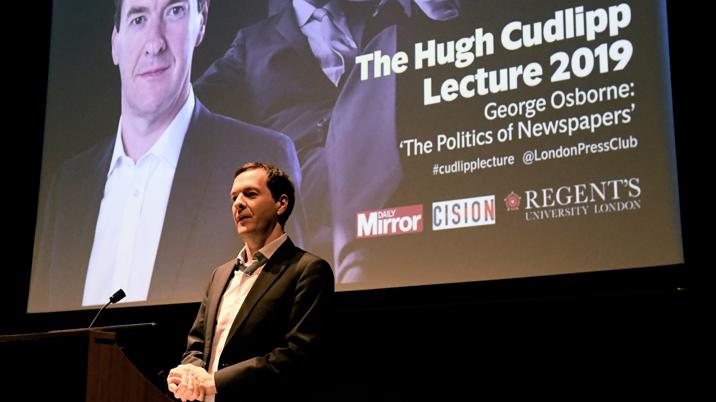
Last Thursday at Regent’s University, Evening Standard editor and former chancellor George Osborne gave the Hugh Cudlipp lecture.
He talked about the intersection of politics and the press and teased the assembled hacks, recalling how he’d had enough of spin and fiddled expenses, so he thought he’d try journalism instead.
He was upbeat about the future because Fleet Street still set the terms of our national conversation.
As for the challenges ahead, he promised us a big idea. He had no truck with charity or state aid. The Tory in him felt that using taxpayers’ money to subsidise a commercial activity was no route to long term success. He also felt that Cairncross had barely scratched the surface of the problems we faced.
What was needed was a more level playing field and his big idea was a simple one: “Let people own their data”.
This would give power to the consumer not the producer. Our data is very valuable – indeed some of the biggest companies in the world have been built on the back of it.
Consumers should have the right to take their accumulated data and share it with another producer. This means that publishers could compete with the big platforms for peoples’ data.
Such a move could, he said, “dramatically change the economics of the online world”.
Osborne thought there was also mileage in the idea of a ‘data dividend’ whereby people would actually get paid for the privilege of using their data.
The domination of the digital world by a small number of companies is a threat and Osborne’s idea is attractive. We just now need to work out how on earth it would work.
(We’re finalising the mailing list for the March/April issue of InPublishing. To be added, register here.)












